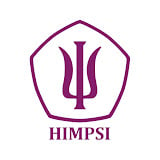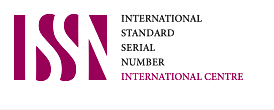The Greater Father Involvement in Parenting, The Better Self-Esteem Develops
Abstract
This research investigates the impact of father involvement on the self-esteem of individuals in early adulthood. Employing a quantitative approach, the study utilized a father involvement scale adapted from Risnawati et al. grounded in the theoretical framework of Gancy and Van Dulman, alongside a modified version of Rosenberg’s Self-Esteem Scale as adapted by Maroqi. The sample consisted of 188 male and female participants aged 18 to 25 who currently reside with their fathers. Participants were selected through an accidental sampling technique. Data analysis using simple linear regression revealed a statistically significant relationship between father involvement and self-esteem. These findings indicate a positive and meaningful contribution of father involvement to the development of self-esteem during early adulthood.
Keywords
Full Text:
PDFReferences
Arini, D. P. (2021). Emerging adulthood: Pengembangan teori Erikson mengenai teori psikososial pada abad 21. Jurnal Ilmiah Psyche, 15(01), 11–20. https://doi.org/10.33557/jpsyche.v15i01.1377
Burn, R. (1993). Konsep diri: Teori, pengukuran, perkembangan dan perilaku. Arcan.
Chung, J. M., Robins, R. W., Trzesniewski, K. H., Noftle, E. E., Roberts, B. W., & Widaman, K. F. (2014). Continuity and change in self-esteem during emerging adulthood. Journal of Personality and Social Psychology, 106(3), 469–483. https://doi.org/10.1037/a0035135
Diori, S., & Handayani, E. (2018). The contribution of perceived father involvement towards relational self-esteem in early adolescence. Uipsur, 139, 41–46. https://doi.org/10.2991/uipsur-17.2018.7
Hedo, D. J. P. K. (2020). Father involvement di Indonesia. Airlangga University Press.
Herawati, I., & Hidayat, A. (2020). Quarterlife crisis pada masa dewasa awal di Pekanbaru. Journal An-Nafs: Kajian Penelitian Psikologi, 5(2), 145–156.
KPAI. (2017, November 5). Survey KPAI peran ayah masih rendah dalam keluarga. https://www.kpai.go.id/publikasi/survey-kpai-peran-ayah-masih-rendah-dalam-keluarga/amp
Kiviruusu, O., Huurre, T., Aro, H., Marttunen, M., & Haukkala, A. (2015). Self-esteem growth trajectory from adolescence to mid-adulthood and its predictors in adolescence. Advances in Life Course Research, 23, 29–43. https://doi.org/10.1016/j.alcr.2014.12.003
Maroqi, N. (2019). Uji validitas konstruk pada instrumen Rosenberg Self-Esteem Scale dengan metode confirmatory factor analysis (CFA). Jurnal Pengukuran Psikologi dan Pendidikan Indonesia (JP3I), 7(2), 92–96. https://doi.org/10.15408/jp3i.v7i2.12101
Putri, A. F. (2018). Pentingnya orang dewasa awal menyelesaikan tugas perkembangannya. SCHOULID: Indonesian Journal of School Counseling, 3(2), 35. https://doi.org/10.23916/08430011
Risnawati, E., Nuraqmarina, F., & Wardani, L. M. I. (2021). Peran father involvement terhadap self esteem remaja. Psympathic: Jurnal Ilmiah Psikologi, 8(1), 143–152. https://doi.org/10.15575/psy.v8i1.5652
Saiful, N. (2020). Meningkatkan self-esteem melalui layanan konseling individual menggunakan pendekatan Rational Emotive Behaviour Therapy (REBT). IJoCE: Indonesian Journal of Counseling and Education, 1(1), 6–12. https://doi.org/10.32923/ijoce.v1i1.1134
Sharma, S., & Agarwala, S. (2014). Self-esteem and collective self-esteem as predictors of depression. Journal of Behavioural Sciences, 24(1), 21–28.
Sowislo, J. F., & Orth, U. (2013). Does low self-esteem predict depression and anxiety? A meta-analysis of longitudinal studies. Psychological Bulletin, 139(1), 213–240. https://doi.org/10.1037/a0028931
Crocker, J., & Park, L. E. (2004). The costly pursuit of self-esteem. Psychological Bulletin, 130(3), 392–414. https://doi.org/10.1037/0033-2909.130.3.392
Miller, P. J., Wang, S., Sandel, T., & Cho, G. E. (2002). Self-esteem as folk theory: A comparison of European American and Taiwanese mothers’ beliefs. Parenting: Science and Practice, 2(3), 209–239. https://doi.org/10.1207/S15327922PAR0203_02
Zaman, W., & Fivush, R. (2013). Stories of parents and self: Relations to adolescent attachment. Developmental Psychology, 49(11), 2047–2056. https://doi.org/10.1037/a0032023
Multahada, E., & Mabelle, M. (2015). The influence of self-concept on self-esteem in the orphanage. TARBIYA: Journal of Education in Muslim Society, 2(2), 118–122. https://doi.org/10.15408/tjems.v2i2.2804
Ranjana, & Moudgil, N. (2017). Parenting styles and self-esteem as predictors of aggression. Indian Journal of Health and Wellbeing, 8(2), 168–172.
Nahema, E. G., & Joëlle, D. (2018). Adult self-esteem and family relationships. Swiss Journal of Psychology, 77(3), 99–115. https://doi.org/10.1024/1421-0185/a000212
Pleck, J. H. (2012). Integrating father involvement in parenting research. Parenting: Science and Practice, 12, 243–253.
Goncy, E. A., & Van Dulmen, M. H. M. (2010). Fathers do make a difference: Parental involvement and adolescent alcohol use. Fathering: A Journal of Theory, Research, and Practice About Men as Fathers, 8(1), 93–108. https://doi.org/10.3149/fth.0801.93
Cabrera, N. J., & Tamis-LeMonda, C. S. (2015). Handbook of father involvement. Routledge.
Ünlü, Ş. (2010). Being fathered and being a father: Examination of the general pattern of Turkish fathers’ and their own fathers’ involvement level for children between the ages of 0–8 [Master’s thesis, Middle East Technical University].
Allen, S., & Daly, K. (2007). The effect of father involvement: An updated research summary of the evidence inventory. University of Guelph.
Rosenberg, M. (1965). Society and the adolescent self-image. Princeton University Press.
DOI: http://dx.doi.org/10.22441/biopsikososial.v9i1.26306
Refbacks
- There are currently no refbacks.
Copyright (c) 2025 Biopsikososial: Jurnal Ilmiah Psikologi Fakultas Psikologi Universitas Mercubuana Jakarta
JBUMBand its articles is licensed under a Creative Commons Attribution-ShareAlike 4.0 International License.
Tim Editorial Office
JBUMB
Fakultas Psikologi, Universitas Mercu Buana
Jalan Meruya Selatan No. 1, Kembangan, Jakarta Barat, 11650, Indonesia
Phone: +6281318855243
Email: [email protected]
Website: https://publikasi.mercubuana.ac.id/index.php/biopsikososial/index

















